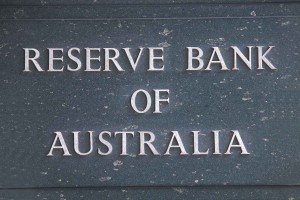Creating more housing could make property more accessible to first home buyers, while the official cash rate is likely to remain unchanged at Tuesday's (02/05/2017) board meeting, according to finder.com.au.
The finder.com.au RBA cash rate survey, which is the largest of its kind in Australia, shows all 34 experts and economists are expecting the Reserve Bank to hold the cash rate at 1.5% for May 2017.
Graham Cooke, Insights Manager at finder.com.au, says despite the survey results, rate changes have not been uncommon at this time of year.
“In the last seven years, the Reserve Bank has cut rates five times in May.
By this time of year, inflation and GDP data is released and the Bank has enough confidence to make a move.
However, economists are universal in expecting no movement tomorrow,” he says.
When providing cash rate forecasts, the majority of panelists surveyed (78%, 25) expect the next move to be a rise.
This is a slightly down compared to last month (86%), but it still indicates strong sentiment for a future increase.
Of the experts and economists predicting a rate rise, the vast majority (81%, 22) believe the rise won’t happen until 2018, with most of this group (15) not expecting a rise until April 2018 at the earliest.
Given the current economic climate, panelists were asked if locking in a fixed-rate home loan for the next five years was a good idea. The responses were largely affirmative with 72% of respondents indicating it was a good time to fix.
Mr Cooke says fixing mortgage rates now could be a wise move.
“Fixed home loans provide certainty, and there are some competitive rates available on the market today, despite some lenders increasing fixed rates recently.
“The expectation across the board is that rates will rise in the next year, so locking in a low rate now could help you manage your repayments both now and into the future,” he says.
Of the minority (7) who believe a rate cut is on the horizon, all bar one economist predict the cash rate will go no lower than 1.0%.
The exception is Jordan Eliseo of ABC Bullion who expects an eventual low of 0.75%.
With respect to improving housing affordability for first home buyers, creating more supply is the most favoured solution, supported by 97% (29) of the panelists.
Mr Cooke says creating more housing should put downward pressure on property prices.
“If the government works to establish more housing supply, this could remove heat from the property market as dwelling prices fall. For first home buyers, this could mean that saving for a deposit and committing to a purchase will become more attainable.
“Having said that, the most recent data indicates that growth in values may be slowing in cities such as Sydney, so any new supply will need to be carefully monitored,” he says.
Eleven (37%) experts and economists recommended getting rid of or reducing negative gearing, while eight (27%) said eliminating or reducing stamp duty could make housing more affordable.
Interestingly, five panelists (17%) cited increasing the first home buyer grant and allowing property purchases through superannuation as measures to improve Australia’s housing affordability issue.
Here’s what our experts had to say:
Michael Yardney, Metropole Property Strategists (Hold): "The recently released inflation figures, while moving into the RBA's target range, are on the low side. Until job numbers improve it would be safe to assume the RBA won’t be hiking interest rates to slow the property markets down. On the other hand they can't afford to drop rates and fuel our pr
Jordan Eliseo, ABC Bullion (Hold): "The RBA remains in no rush to cut interest rates, despite the fact that most economic data has been soft, and inflation remains well controlled. Financial stability concerns are still a factor, though we remain of the view that there is more downside to come for rates in the next 12 months."
Shane Oliver, AMP Capital (Hold): "Worries about excessive home prices and debt growth prevent a cut, but low underlying inflation and wages growth prevent a hike and meanwhile growth is okay."
Alison Booth, ANU (Hold): "Key indicators suggest this."
John Hewson, ANU (Hold): "[We are] waiting on budget."
Darryl Gobbett, Baillieu Holst Ltd (Hold): "The RBA would see Australian inflation as moving in line with its longer term view, particularly with the signs of rising inflation, albeit from a very low base, overseas. In addition, the RBA would still see the potential systemic risks from increased household debt of cutting rates as being higher than any potential benefits."
Kishti Sen, BIS Oxford Economics (Hold): "Domestic demand remains weak."
Paul Dales, Capital Economics (Hold): "The rise in underlying inflation in the first quarter has reduced the need to cut interest rates further, especially when lower rates would boost the still hot housing market. "
Michael Blythe, CBA (Hold): "Low inflation says no need to raise rates. Hot housing markets says don't cut rates."
Savanth Sebastian, CommSec (Hold): "The Reserve Bank doesn’t need to cut rates again with inflation trending higher, rather than lower. And there are doubts that rate cuts would actually do much in terms of driving the economy higher and lifting inflation. But similarly rate hikes are off the agenda. Given the slow growth in wages and range-trading in global oil prices, it is unlikely to result in a change to the domestic inflation landscape."
Dr Andrew Wilson, Domain Group (Hold): "Although momentum building for a rate cut, no clear case yet. RBA increasingly pincered between its narrative of high house price growth, a clearly weakening economy and independently higher mortgage rates."
Saul Eslake, Economist (Hold): "Both current and prospective conditions remain much as they have been at recent meetings - 'underlying' inflation below target but heading in the right direction; unemployment and other indicators of 'spare capacity' in the labour market higher than the RBA wants - so no case for raising rates; but also too much risk of fuelling further house price inflation to warrant cutting rates any further."
Mark Brimble, Griffith Uni (Hold): "While broad economic indicators suggest the economy needs further support, the concerns re certain elements of the credit and housing markets is likely to keep the RBA on the bench."
Shane Garrett, Housing Industry Association (Hold): "No particular advantage in changing rates one way or the other at this stage."
Alex Joiner, IFM Investors (Hold): "No justification to move - inflation data for Q1 was inline with the RBA's forecasts"
Michael Witts, ING Bank (Hold): "The broader economy is progressing in line with the RBA's expectations. The recent increases in housing loan rates especially for investors will slow this segment of the market."
Leanne Pilkington, Laing+Simmons (Hold): "Again, there are insufficient drivers to force the Reserve Bank to adjust rates at this time. While recent inflation figures appear to suggest the economy is moving in the right direction, concerns around demand for employment remain, and the forthcoming Federal budget is yet to go under analysts' microscopes. Against this background, we believe the prudent course is for the Reserve Bank to hold."
Nicholas John Gruen, Lateral Economics (Hold): "They're not sure of what to do."
Matthew Tiller, LJ Hooker (Hold): "Despite the recent rise in inflation, ongoing strong property price growth should ensure the RBA holds steady over the short term."
Stephen Koukoulas, Market Economics (Hold): "RBA continues to misread inflation, unemployment, wagers and growth. It should cut but it won't."
Mark Crosby, Monash University (Hold): "The RBA will wait another month or two to evaluate global developments and assess the probability of a new US rate rise before considering raising."
Emily Dabbs, Moody's Analytics (Hold): "Inflation pressures are strengthening, full-time employment has improved, and high household debt continues to pose a risk to financial stability"
Jessica Darnbrough, Mortgage Choice (Hold): "The latest economic data suggests the Australian economy is tracking along quite nicely at the moment. Inflation has bounced slightly higher, the unemployment rate remains relatively low, and consumer confidence continues to sit around the point where optimists and pessimists are in equal number. With that said, I don't think there is anything out of the ordinary happening at the moment that would force the Reserve Bank to adjust its stance on monetary policy. "
Christopher Schade, MyState Bank (Hold): "The hurdle for another cut is high. While inflation remains subdued and the outlook for economic growth over the next couple of years is slightly below trend, interest rate settings in Australia are very accommodative and remain appropriate at their current level. The RBA appears particularly reluctant to deliver further cuts in light of the very buoyant housing market in certain regions."
Alan Oster, NAB (Hold): "[The] RBA [is] stuck between cutting for the broader economy and house price pressures"
Jonathan Chancellor, Property Observer (Hold): "All the numbers are settling into place nicely."
Matthew Peter, QIC (Hold): "Housing market risks constrain any attempt to lower the cash rate. Growth and inflation remain tepid constraining any thought of a rate hike."
Noel Whittaker, QUT (Hold): "No reason to move either way."
Christine Williams, Smarter Property Investing (Hold): "Even though the major banks have chosen to increase, for the most part our resources, unemployment rates and retail sectors have not seen an increase."
Steven Milch, Suncorp (Hold): "Growth and inflation [are] gradually firming but not yet warranting higher rates."
Brian Parker, Sunsuper (Hold): "Inflation figures provide no great reason for RBA to change their views."
Clement Tisdell, UQ-School of Economics (Hold): "No reason to change."
Nicki Hutley, Urbis (Hold): "Growth and inflation remain well-behaved"
Bill Evans, Westpac (Hold)




















